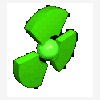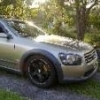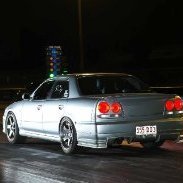Intercooler pipes - aluminum vs stainless
Announcements
-
Similar Content
-
Latest Posts
-
By joshuaho96 · Posted
Right, but if you replace the pump gears + put a spline or sine drive gear on the crank on a Nismo/OEM/N1/etc pump at that point do you really still want more flow/oil pressure? Let's say this is a the aforementioned "keep it simple" build, no more than ~400 kW at the crank. -
Strength. And on the early RB26, full engagement of the pump drive.
-
By joshuaho96 · Posted
I really don't understand the point of aftermarket oil pumps if your particular engine doesn't need more oil pressure. As far as I can make sense of it the problem seems to be cavitation from sucking air, maybe the pump gear design with how it interfaces with the OEM crank, and maybe the backing plate screws wanting to loosen themselves. How does flowing more oil fix these issues? -
More photos are up, and the price has been dropped to $16,000. It's just had a service and a new 12V battery, too.
-
I agree on doing some better than factory pistons, rods, and oil pump. For anyone using the vehicle on the road, I don't get why everyone wants big cams. The stock cam profile, with some more lift would be mint for road usage. Everyone going big cams and then wondering why it isn't as responsive in traffic, when they've shifted the torque curve upwards an additional 1000RPM. Make torque, at lower RPM. Sure it's not as cool as claiming "500KW" and revving it to 8,0000RPM, but that same torque 2,000RPM earlier... Then you don't need the extremely high end pistons and rods, and blah blah blah.
-






Recommended Posts
Create an account or sign in to comment
You need to be a member in order to leave a comment
Create an account
Sign up for a new account in our community. It's easy!
Register a new accountSign in
Already have an account? Sign in here.
Sign In Now